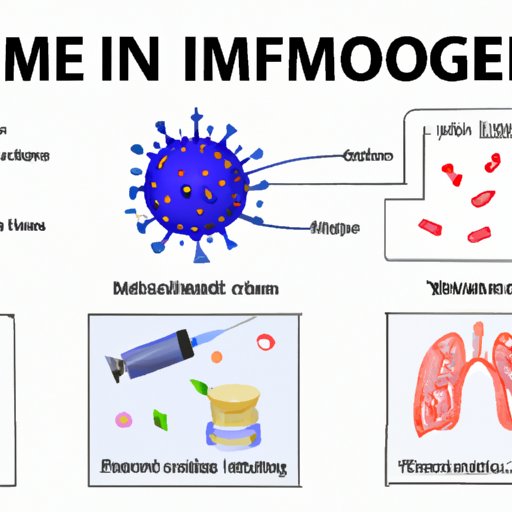
How the Immune System Protects the Body from Disease
The human body is constantly bombarded by pathogens that can potentially cause illness or disease. However, the immune system functions to identify and eliminate these threats before they can cause harm. Understanding how the immune system works is essential for disease prevention and overall health.
Overview of Immune System Components
The immune system is composed of various components, including white blood cells, antibodies, and the lymphatic system. White blood cells, also known as leukocytes, are responsible for identifying and eliminating foreign invaders. Antibodies are proteins that are designed to recognize and bind to specific pathogens, marking them for destruction by white blood cells. Together, the cells and antibodies work to protect the body from infectious agents.
Pathogens and Types of Infection
Pathogens are microorganisms that can cause illness or disease in humans. There are various types of pathogens, including bacteria, viruses, and fungi. Bacteria are single-celled organisms that can reproduce rapidly and produce harmful toxins. Viruses, on the other hand, are not living organisms but can invade living cells and replicate inside them. Finally, fungi are multicellular organisms that can cause infections in various parts of the body. The immune response to each of these types of infections can vary.
Three Main Lines of Defense
The immune system has three main lines of defense against pathogens. The first line of defense is made up of physical and chemical barriers, such as the skin and mucous membranes, that prevent pathogens from entering the body. The second line of defense is innate immunity, which is a non-specific response to pathogens. Innate immunity involves the use of white blood cells to identify and eliminate threats. The final line of defense is adaptive immunity, which is a specific response to pathogens that have been encountered before. Adaptive immunity involves specialized white blood cells, called T and B lymphocytes, that work together to eliminate specific pathogens.
Immunological Memory
One of the most important aspects of the adaptive immune response is the development of immunological memory. This means that the immune system is able to recognize and respond more quickly to pathogens that it has encountered before, leading to faster and more effective elimination of the threat. This is the basis for vaccinations, which help the immune system develop immunological memory to specific diseases.
Weakened Immune System
A weakened immune system can leave the body vulnerable to a variety of infections. Causes of immune system weakness include genetics, malnutrition, chronic illness, and certain medications. Individuals with underlying health conditions, such as HIV/AIDS or cancer, may be more vulnerable to infections due to their weakened immune systems.
Conclusion
The immune system is essential for overall health and disease prevention. From physical barriers to specialized antibodies, the immune system works tirelessly to keep the body protected from pathogens. Maintaining a healthy lifestyle, including proper nutrition and exercise, can help support immune function. Understanding the immune system and how it works is a key aspect of preventing disease and maintaining good health.





